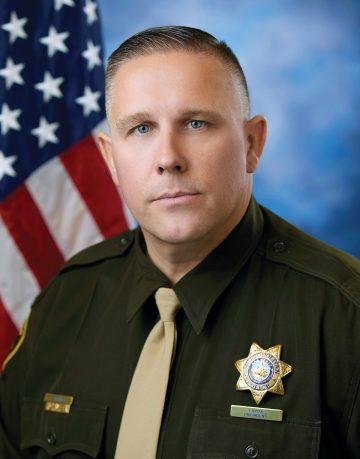
President
About two years ago, I started training with Chad Lyman. Most of our early training focused on cardio work and some stand-up striking. I remember thinking to myself on the first day, “Damn! This is hard.” Eventually, the cardio and workouts became a little easier. Let me say, Chad is a great teacher. This guy really knows how to coach and uplift you when you feel like you have no more to give.
After about six months, Chad invited me to go to Xtreme Couture to do jiu-jitsu. I had done some jiu-jitsu when I was younger but suffered an injury that made me a little apprehensive about going back. Despite that, I took Chad up on the offer.
The first class I took was a whirlwind! My cardio sucked for jiu-jitsu, and I was super lost. Chad was the lead instructor. Even in a class full of amazing grapplers, he still taught with the same energy, passion and slow, methodical approach he usually took with me. I can tell you, as a 40-year-old guy who has been strong and athletic P# 7781 his whole life, I had my butt kicked by young men, teenagers, old guys and young ladies. One class turned into two, then two into three, and now, for the last year and a half, I have been training consistently every week, getting better and better.
I don’t tell this story of my training without having a point. As confident, strong and athletic as I was when I was first hired on the Department back in 1998, I truly believe that now I would put a whooping on my younger self if we ever met.
Why is this important? I should not be in the best shape for defending myself when I am in the twilight of my career, no longer out in the field where real danger is waiting on every car stop or person stop or call for service. I should have been preparing myself way back when I started on the agency and was dealing with all the shady folks we encountered. Even more so, nowadays, MMA gyms are full of people and are everywhere in this town. The odds of an officer coming upon a suspect they intend to arrest who has some level of training is far higher now than ever before. Las Vegas is the fight capital of the world. If you think what you learned in the academy and some late DT classes or training is enough to handle a well-trained or even poorly trained suspect, you are lying to yourself.
It is not enough to be big and strong and a good “barroom brawler.” On the contrary, officers should be building their toolbox with more technique to be better able to subdue a violent or resistant attacker. I am not saying size and strength are not good. I am saying that those alone, against a fairly well-trained individual, may not be enough.
What we see today in policing, as it relates to uses of force, is a change in how the public wants to see their police force. Long gone are the days of wanting to see tough officers who can knock someone out with one punch. What they want to see is officers using what appears to be a minimal amount of force on suspects to gain compliance. I can tell you, from my training, learning to better handle and control a suspect will add longevity to your career in several ways: fewer injuries to you and the suspect, fewer documented use-of-force cases and the ability to end a close-quarter, potentially deadly force scenario without having to use deadly force.
I hope this article does not come across as “preaching”; rather, I hope it comes across as a call to action to our officers to go out and join a gym. Start training yourself and sharpening the tools in your toolbox. Several departments are actually led by chiefs and sheriffs who support a jiu-jitsu-based curriculum and even offer pay incentives for people who train. The cost to train officers in combatives and jiu-jitsu could far outweigh the cost of a lawsuit against their agency. I think we will see this more and more in the future, as young officers who train will begin to promote and take leadership spots on agencies. Those new leaders will understand the benefits of training in this world and will likely promote it. There is currently a police department in Arizona that plans to have its officers train for one hour every day, not their lunch hour, to get proficient in control techniques.
This needs to be the new norm. As long as the media and politicians see uses of force that look ugly to them, regardless if we are able to justify it or not, they will continue to attack our profession. But if we start making these encounters about control and custody in better ways because we take the time to train, it will make that narrative a little smaller.
A quote from my friend, mentor and trainer: “Go out and train a little, a lot.”
P.S. If any officer wants some time with me and Chad at the PPA, let us know and drop in. We are here to help.

